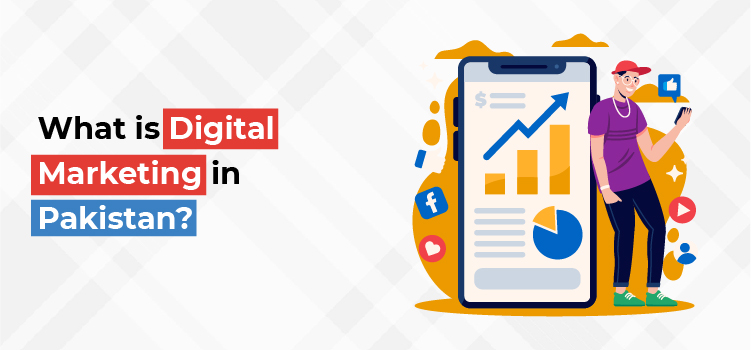Pay-per-click advertising (PPC) is a method of internet marketing that lets you pay for ad placement in the search results on Google or Yahoo. It’s also known as cost-per-click, or CPC. With PPC advertising, you only pay when users click on your ad – not when they see it.
PPC advertising allows you to target highly specific key phrases
PPC advertising allows you to target particular key phrases, which means you can choose the people most likely to be interested in your products or services. This can lead to better conversion rates and lower costs per click. For example, if you want to advertise your new dog walking service, you could create an ad campaign that targets “dog walkers” and “pet care.” You’ll only appear in search results if someone types those phrases into Google.
You can also target key phrases relevant to customers of other businesses in the same field as yours. For example, if you’re a pet care business owner who has noticed that many of your clients are using online research before hiring someone for their pet-sitting needs. Then targeting terms like “career opportunities” might help bring more leads into your sales funnel from job-seeking animal lovers looking for work outside of their current field, and who knows? Maybe they’ll become regulars!
Another benefit of PPC advertising is its ability to display ads based on competitors’ keywords so that people searching for things like “$10/hr jobs” will see one company’s ads instead of another’s (or none at all). This is called negative keyword targeting.
It means using words or phrases within an ad campaign’s copy so that certain words won’t appear at all when showing up alongside others. Such as excluding specific brands from appearing on ads altogether by creating negative lists within each account’s settings menu under Ad Extensions & Features > Keywords Manager.”
Also read: PPC and Its Benefits for Your Business
Ample opportunity for A/B testing
A/B testing is a great way to improve your ads and landing pages. You can test different headlines, images, and ad copy, as well as different landing pages. And you can also test different ad placements (top vs. side of the page) or even bid prices.
You don’t pay for ads that aren’t clicked!
When you pay for ads, you only pay when people click on your ad. This means that you don’t pay anything if your ad doesn’t get any clicks. And best of all, there are no impressions!
This is a huge benefit of PPC advertising because it means you can focus on getting more clicks rather than paying for an inflated number of impressions. In fact, on average, accounts with high CTRs generate roughly 30% more leads than low-performing accounts (source).
You can also set a maximum cost per click (CPC), which ensures that your campaign doesn’t spend too much money each day or week. You can also set a maximum cost per day (CPD) and even a maximum cost per campaign so that no single advertiser dominates the budget at one time or another.
PPC campaigns can generate leads in a short period of time
PPC campaigns can be set up quickly, and you can get real-time reports about your ad performance.
You can also set a PPC campaign for a specific period of time and budget. For example, you could run a campaign for one month to see how many leads it generates. In this case, you’ll know that those leads will only convert into sales if they buy something within the next 30 days (or whatever your timeline is).
PPC can help increase brand awareness and recognition
PPC can help you get your name out there and increase your company’s visibility in search results. By targeting your ads at people who are likely to be interested in what you have to offer, you’re more likely to succeed in gaining their attention and building trust with potential customers.
Additionally, PPC advertising can help build brand recognition by associating your business with relevant keywords if done correctly. So that when potential customers search, they will see both the ads and the actual business name together on the same page. This association makes it easier for them to remember which company they saw or heard about earlier.
Also read: 8 Benefits of Social Media Marketing That Help Your Brand Have a Robust Image
Disadvantages of PPC
- It’s expensive when compared to other ways of acquiring new customers.
- It’s difficult to keep track of results once a campaign is underway.
- You won’t learn anything about SEO if you only use PPC.
PPC is expensive when compared to other ways of acquiring new customers.
PPC is expensive when compared to other ways of acquiring new customers. It is expensive because you pay for every click, not just those that convert. This means that if your ad gets 1,000 clicks, but only 5 people make a buy, you still paid 500 dollars for those clickthroughs and did not get any return on your investment.
It’s difficult to keep track of results once a campaign is underway.
While PPC is fairly easy to set up, you must keep track of your campaigns and monitor their progress. This isn’t a huge burden if your campaigns are small, but they can get complicated as they grow in size and complexity. You’ll have to keep an eye on the following:
- Keywords and ad copy that are getting clicks
- Landing pages that are converting visitors into leads or sales
- The costs (and ROI) of each campaign
- If you’re managing multiple accounts for different clients, this can be a lot of work.
You won’t learn anything about SEO if you only use PPC.
PPC advertising is a quick and easy way to get traffic. You can set up an account, choose your keywords, and receive results within minutes. Once you’ve determined that the ad campaign is successful, it takes only a few clicks to stop the ads from running if you have enough data to prove that they aren’t working for you anymore.
Suppose you’re interested in getting a lot of traffic quickly and easily (but without much focus on conversions). In that case, PPC advertising may be right for you. Especially if your budget allows for some experimentation with different ad copy before choosing which ones work best.
Also read: Social Media Marketing Strategies – All you Need to Know
Pay-per-click advertising (PPC) has many benefits, but it also has some disadvantages.
The biggest disadvantage of PPC advertising is its cost. If you’re running a campaign on Google and your keywords aren’t in the top 20 spots, you’ll pay more for each click than if they were. And unlike other forms of digital marketing, there are no guarantees when it comes to results—no analytics reports or sales numbers (unless you have them). If a campaign isn’t producing any results within the first few weeks, it’s difficult to know whether or not it will eventually produce results at all. PPC can be expensive compared to other ways of acquiring new customers.
Another disadvantage is that it can be hard for business owners to know which strategy might work best for their business needs without hiring an expert consultant. Especially those business owners who are unfamiliar with digital marketing tactics. Because there are so many different types of PPC strategies out there—including search engine optimization (SEO), pay-per-click (PPC) advertising, etc.
We hope you’ve found this article informative and helpful. If you want to hire professional services, we are a perfect choice.




